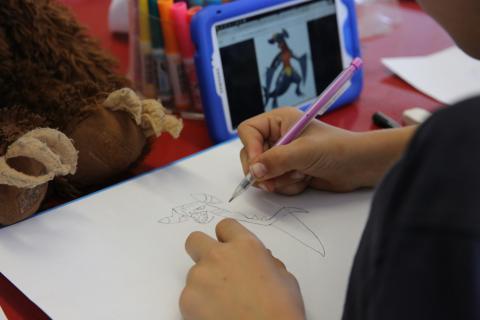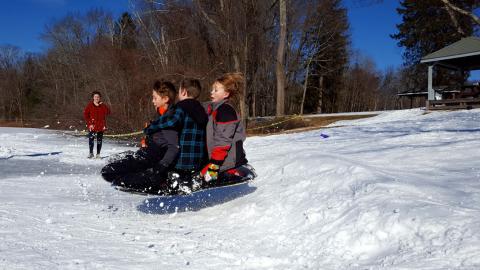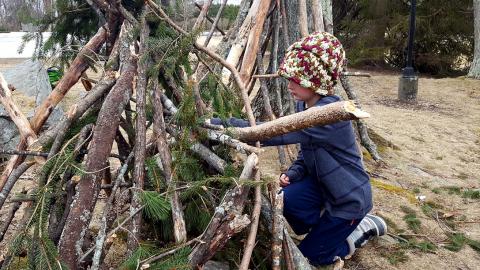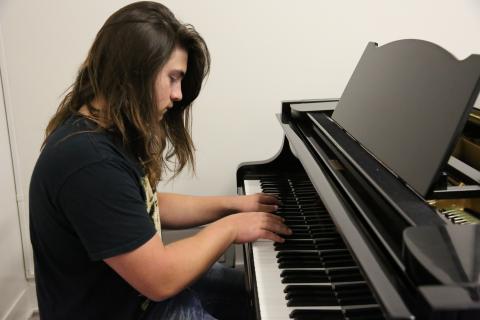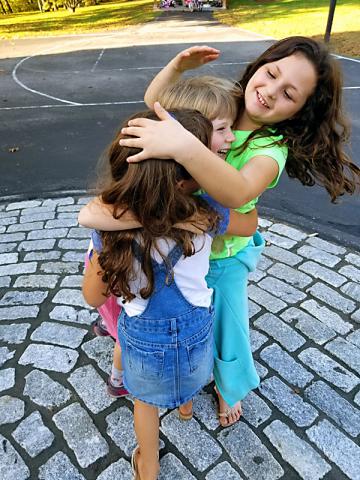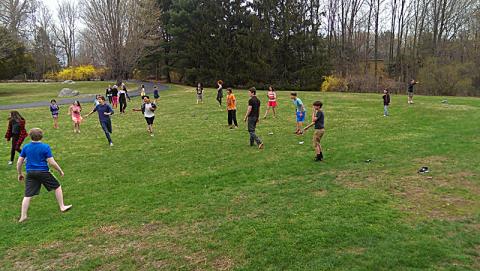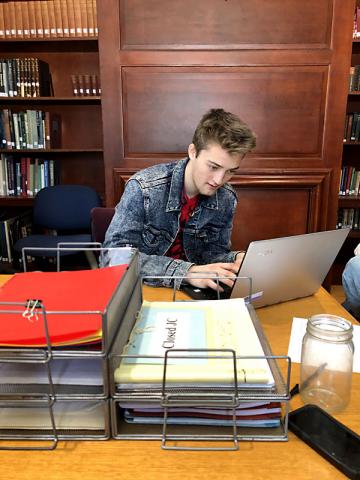What do SVS students have in common? What are the distinguishing features of this vibrant collection of people whose energy strikes you the moment you encounter them? For a long time I have been trying to articulate the answers to these questions. Here is what I have concluded:
They know what to do. They do not spend much time any day flailing. They start doing things as soon as they get here. If they need friends for their activity, they find them or do something else interesting while waiting.
They do things that interest them, and for the most part ignore those that don’t. They know pretty much all that is going on. That means they sled and play on the ice when the pond is frozen, but not if they don’t want to even though they know there are only a few days of ice safety each winter. They are clear in their own minds about what is compelling and when.
They spend a tremendous amount of time in intense activity. Intense activity pushes every mental growth button! There seem to be no limits to the imaginations of anyone. Every stick can be a toy. Every pile of dirt can be a city. A whole bunch of sticks – a hut. Rocks? Pieces of slate? Items to use in everyday life in their world. For all of these things? A pop-up marketplace.
When something stops being an object of curiosity, they can walk away. Period. It can be the piano, it can be calculus, it can be a computer game when you have mastered it. Challenge mastered becomes a bit less interesting. When fear of the rocks ends, why go to the rocks? Consider the possibilities of luge instead! Years later – maybe the piano, or even Fortnite may return.
Community lies softly around them. Sometimes it seems that they have separated themselves with a small group of friends. But they haven’t, and 20 years later remember most of the kids they were in school with.
They can live in the moment. Just run into every room and say “Capture” and find out who will play Capture the Flag. It can turn out to be the whole community.
They look you straight in the eye. They have the advantage of knowing they are your equal, and it shows: they respect you, and they know you respect them. How can you tell? Every single one of them will chat with you – if necessary! That is actually one of their most interesting qualities.
They don’t care how old you are. The four year olds don’t feel tall, but they do feel seen and able to converse on your level; the 80 year olds don’t feel invisible or that they aren’t worth listening to.
The older new students arrive questioning everything about the school and basically assuming that everything we say about the school is a lie. How could it possibly be true? Who ever heard of such a place? So it takes them time, and some amazing “aha” experiences, to reach the moment when a teenager who has been in school less than a year can say, “this school has totally changed my life”.
They have to assume significant responsibility to make sure that the community keeps running in a way that leaves them able to pursue happiness in freedom. For this they have to foster a healthy judicial system and a vibrant legislature, and then they are free to let their nature flourish.
They are all brilliant. We have not figured out any way to account for it. It takes a while – months or years even – for some to become brilliant, but do it they will. Why? Because they are free; they are able to use their bodies and their heads as they wish; they are completely trusted. All children who are trusted to freely develop their own minds turn out to be brilliant. We have seen this close up for over half a century.


